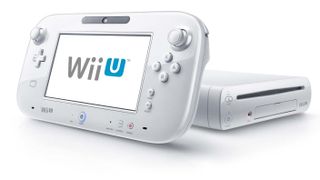Wii U only needs to sell one game per system to make a profit
Nintendo counting on games to make Wii U worthwhile

Nintendo's Wii U is a departure from the company's typical business practices, since unlike the Wii or 3DS, the new hardware is being sold at a loss.
However, amid the Black Friday furor, Nintendo of America President Reggie Fils-Aime revealed that the system's losses can be offset with just one game purchase per Wii U.
- Read about the new Wii Mini
"As soon as we get the consumer to buy one piece of software, then that entire transaction becomes profit positive," Fils-Aime told the San Jose Mercury News.
Nintendo published four of the Wii U's launch titles, including New Super Mario Bros. U, Nintendo Land, Ninja Gaiden 3: Razor's Edge and Sing Party.
Wii U sells out
According to Fils-Aime, any one of those games bought with the Wii U will offset hardware costs and turn a net profit for the company.
The only exception comes from Nintendo Land, which is included with the Wii U Deluxe system. In that case, an additional game would also have to be bought to make the system profitable.
Nintendo announced Monday that it sold 400,000 Wii U units during the system's launch week.
Get daily insight, inspiration and deals in your inbox
Get the hottest deals available in your inbox plus news, reviews, opinion, analysis and more from the TechRadar team.
No game sales numbers were released, so it's difficult to say whether Wii U has turned a profit for Nintendo yet. The best indication of sales so far are active users on Miiverse, the Wii U's integrated social network.
Currently, the two most popular games in Miiverse are Nintendo Land and New Super Mario Bros. U, with more than 50,000 and 45,000 active users, respectively.
Miiverse only keeps track of users who post in the social network's forums, so actual sales numbers are likely higher.
Wii U's 400,000 units sold is a respectable number for a new system's launch week. In fact, the Xbox 360 sold 326,000 units during the entire month of November when it launched in 2005. However, the Wii U launch falls short of the Wii's 2006 launch that sold 600,000 systems within eight days.
Wii U may not have the same gravitational pull that the Wii had on users, but it also enters the market at a time when game hardware sales are down across the board.

How to watch Liège-Bastogne-Liège 2024: live stream men's cycling online from anywhere

A key Apple app is rumored to be getting a major upgrade in macOS 15

Intel's formidable 288 core CPU now has a proper family name — Granite Rapids and Sierra Forest are Xeon 6 processors but is it just becoming too confusing?
Most Popular

